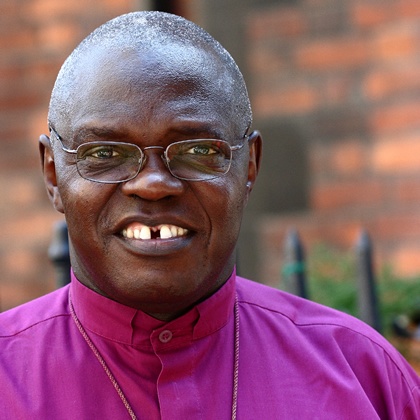What advice would you give to the Archbishop of York as he ‘retires’?
2 October 2018 By Victoria Tomlinson

I have just been on BBC Radio York commenting on retirement (or unretirement as we prefer to call it!) following the announcement yesterday that the Archbishop of York will retire in 2020, a few days before he is 71.
I was interviewed by the lovely Georgey Spanswick on the Breakfast Show (listen at 1:42:02). She was asking about our research on retirement which showed that 57% of people who retired in the last two years think the concept of ‘retirement’ is outdated.
But I was also talking about what Dr John Sentamu needs to watch out for – we know from helping hundreds of people that this can be a really difficult time of life. Georgey mentioned her ex-father-in-law who had really struggled with this stage of life. I agreed but explained to Georgey that I often use the Kubler Ross grief curve to help people understand what is happening to them when they retire. The Kubler Ross curve is about what happens in bereavement – most people go through a cycle of denial, anger, frustration, depression before they come out to acceptance and enthusiasm again.

When people retire, many are essentially bereaved and grieving for their lost life of work and an identity which carried some kind of status.
So what advice would I give to the Archbishop of York?
The general advice is to take time off and think about what you want, once you have retired. I am now saying – don’t. When you retire you quickly lose confidence and your networks. You don’t have to organise your whole new life, but do have something to do as soon as you leave work where you continue to use your skills and feel relevant. This is more than babysitting your grandchildren.
Ideas could be mentoring someone younger – at a school, university, one of your children’s friends with a business or someone who is having a hard time getting a new job. Think about who you know who is having a hard time and offer support and a listening ear. It could be a charity or even someone at your old work.
Think about your new identity. Even if you haven’t sorted out the long term, create a LinkedIn profile that pulls out the skills you want to use – and could be useful to others – in this new life.
Keep up old networks – set up coffees and lunches; reconnect with people from the past and find ways to create new networks, maybe joining business clubs.
The advice I was thinking of for Dr John Sentamu is
– He needs to start planning now – the plan doesn’t have to be perfect, but you will feel more confident if you have a plan. Even if the
– Don’t expect people to beat a path to your door – even if you are Dr John Sentamu, you can’t rely on who you have been to get new opportunities. It is normal for the phones to go dead. The most senior people still have to create a plan, an identity and network to make things happen
– Don’t be surprised if you feel quite low when you leave corporate life – but having a plan will help you to be confident and get your new life shaped more quickly
But …. It is a magical time of your life – make it work for you on your terms. And we can help you to do that at Next-Up. Look at all our videos and stories, become a member. Come to our conference in November we have extended the early bird 50% discount, book now!


